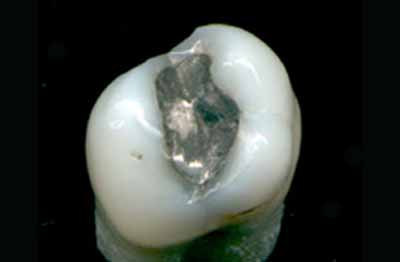
AMID global concern on the effect of mercury on the environment and human health, the federal authorities have announced plans complete the phase down of dental amalgam use in Nigeria by the year 2020.
In hospitals and dental clinics settings where mercury is very heavily used, mercury spills, fumes and dental wastes contribute to the risk of human exposure in healthcare facilities.
Millions of dentists around the world including Nigeria routinely use dental amalgam as a filling material to repair decayed teeth. Currently, there are tonnes of mercury in the mouths of Nigerians due to dental amalgam filling.
The Deputy Director, Department of Pollution Control and Environmental Health, Federal Ministry of Environment, Idris Adamu Goji who revealed this during a one-day stakeholders’ workshop organized by Lagos State Ministry of Environment in collaboration with Sustainable Research and Action for Environmental Development (SRADev Nigeria) under the auspices of World Alliance for Mercury-Free Dentistry, USA, disclosed that there are on-going process to ratify the Minamata Convention on Mercury in Nigeria and partnership with UNITAR will ensure early implementation of the Minamata Convention on Mercury in Nigeria.
According to him, the government is collaborating with relevant stakeholders and Non Governmental Organisaions to sensitise health institutions on the need to phase down/phase out dental amalgam in the country.
The Executive Director, Sustainable Research and Action for Environmental Development (SRADev Nigeria), Mr. Leslie Adogame said the health care sector around the world is moving to replace mercury-based medical devices with affordable, accurate and safer alternatives. National governments, states, and municipal health care systems in Asia, Latin America and even some Africa countries are now moving forward to develop and implement policies to switch to mercury-free health care. “But unfortunately, Nigeria government is yet to take any serious policy initiative in this direction,” he said.
He explained that the goal of the forum is to enable Lagos stakeholders to set the pace and work collegially towards a plan of action to phase down the use of dental amalgam in response to the “world’s call for action”.
Through the newly-adopted Minamata Convention on Mercury, the world recognizes that dental amalgam is a major environmental pollutant. The Convention requires each participating nation “to phase down the use of dental amalgam” and perhaps ultimately phasing it out and switching to mercury-free alternatives.
Today in Nigeria, he said, dental amalgam is still highly in use in both government and private dental clinics despite alternatives to mercury dental amalgam exist, such as composites (most common), glass ionomers and copolymers (modified composites), these are all effective alternatives that are generally tested to be more attractive than the traditional amalgam.
In his keynote paper, Adolphus Loto, a medical doctor said the elimination of amalgam involves every sector of the economy, adding that there must be a strategic plan to achieve the phase down.
According to him, the phase-down of the use of dental amalgam in restorative dentistry requires a coordinated holistic and multi-sectorial approach by stakeholders.
The chairman of the occasion, Prof. Godwin Arotiba, remarked that it is difficult for people to change their habits, adding however, that with willingness and collaborative efforts across all strata of the society, change from amalgam to other alternatives as being clamoured for by the organisers of the one-day event, can be achieved.



